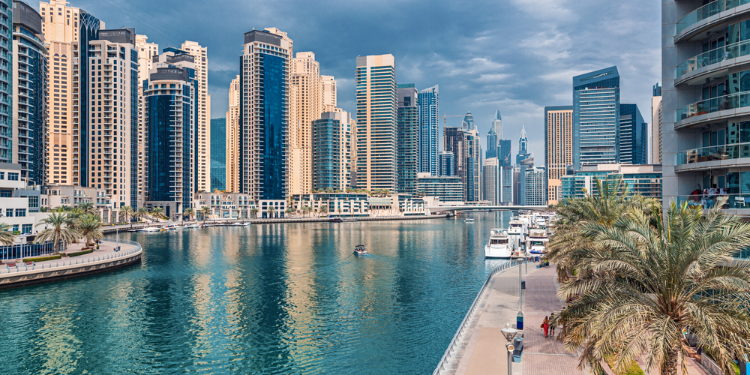Property prices are skyrocketing in popular expat destinations
The real estate sector blows hot and cold on global economic growth. 2021 has seen a rise in property transactions, with prices booming. This upsurge is mainly due to the market catching up on the 2020 slump (many transactions were canceled because of the lockdowns), but it is not the only reason. The remote working craze, a direct consequence of the pandemic, has seen the emergence of new expats profiles. Corporates have been quick to follow suit, especially the major players, and they have organized the remote work niche abroad. Countries have helped, too, by creating the digital nomad visa.
Europe and North America are the top destinations for expats. Those expats value a healthier lifestyle, a safer environment, and better career prospects, which also gives them time to enjoy their personal life. In addition, these expats have money to invest, and real estate remains one of their favorite investments.
These destinations have seen the sharpest increases
In 2021, housing prices in the United States have increased on average by 18.1%. However, prices differ depending on which State you are in. In California, the preferred location for expats, prices have increased by 15.4%. New York has seen a 20% price increase. Despite the ever-increasing real estate prices, Florida remains among the favorite destinations for expats. In 2022, property prices went up by 27.3% and 29.4%, respectively, in Miami and Tampa.
However, Portugal is where the presence of expats has the most significant impact on the real estate market. Portugal banked heavily on foreign direct investment to get out of its economic slump. This proved to be a winner, but it also came with a heavy price, especially for Portuguese who had to leave the towns that had grown too expensive. In 2022, the housing prices in Portugal reached a new high, +19%, its highest since 1991 (18.8% increase then). Between March 2020 and January 2022, prices were already up by 27.5%. All these add up to a combination of “scary” figures, ever-increasing interest rates, and locals who could barely recognize their hometowns.
Lisbon is the trendsetter. The local media consider that foreign investments are transforming the city, with certain neighborhoods being home to a higher proportion of expats. Among their ranks are millionaires for whom Lisbon's real estate niche is a very “trendy” investment. Foreign investors in Lisbon, notably French nationals, accounted for nearly 40% of the real estate market in 2022, with record investments estimated at 920 million euros.
Is Dubai the new Eldorado for wealthy expats?
90% of the people living in Dubai are foreigners. The hugely cosmopolitan city is a beacon for international talents seeking new professional opportunities. But the dream can be short-lived, the culprit being the ever-increasing cost of living in Dubai.
Many expats are finding it hard to have adequate housing facilities in Dubai. Driven out of the city by even wealthier foreigners, these expats have no other choice than to look for smaller residences or those situated far from Dubai (like in Sharjah, 30 minutes drive away). Others have ditched Dubai for its main competitor in the region, Riyadh (the capital of Saudi Arabia). Between 2022 and 2023, real estate prices have increased on average by 27% in Dubai, with peaks of 50 to 60% in certain neighborhoods. Property prices have doubled since 2021, a fact confirmed by real estate agencies. In posh and upscale neighborhoods, 1 million dollar family homes (2021) now cost 2 million USD or higher. Even at this huge price, there are buyers.
In the United Arab Emirates (UAE), the average price of a family house rose by 26% in one year. The figure shoots to 28% for apartments and condos. On average, a family home costs 107,000 USD in the UAE. However, this price jumps to 277,000 USD in the Palm Jumeirah archipelago in Dubai.
This is best explained by the increase in foreign investments, especially from Russian citizens. Following the war with Ukraine and the Western sanctions it brought about, many wealthy Russian investors have diverted their attention to Dubai. The luxury property sector thus saw a 100% increase due to the interest of Russians and ex-Soviet Union's citizens in 2022. It's worth noting that wealthy German, Swiss, British and Italian citizens have also heavily invested in the property sector.
The housing crisis and immigration are a headache for governments
Some foreigners living in the UAE believe that their plight is similar to locals. The pressure from the real estate sector is too much for them, as it echoes in many other aspects of their life. For example, how to cope with monthly rent fees abruptly going from 3,000 USD to 6,000 USD? How to carry the burden of inflation rates and the high costs of energy, transport, services and alimentation? The attractive tax benefits of the UAE are often put in the limelight, but one tends to forget that there are many hidden government taxes and obligations. For the expats disappointed with Dubai, London – generally considered quite an expensive city to live in – is a far better option than the cosmopolitan city of the UAE.
The Portuguese government is working on new measures to solve the housing issues. The question arises, however, on how to maintain an equilibrium between attracting and keeping foreign investments while at the same time ensuring that all citizens continue to enjoy a decent way of life. In Mexico, this is indeed a problem. In a major twist, more and more Americans are immigrating to Mexico, driven from the US by the high inflation rates. Lower pricing rates in Mexico mean that American citizens enjoy a higher purchasing power there. According to the Mexican National Institute of Statistics and Geography, in 2020, there were 797,266 American immigrants. In 2021, these figures jumped to 1.6 million. It is worth noting that the pandemic has boosted that already-established trend. This increase in American residents in Mexico has a direct consequence on the real estate prices there. Hence, between 2020 and 2021, housing rates have increased by more than 17%. A property valued at 360,000 USD in 2020 cost 428,000 USD a year later. This phenomenon is worrying as many Mexicans earn a mere 400 USD monthly.
The need for more social justice
Victims of the global housing crisis are calling for more social justice. Benefits promised by governments have not yet materialized (foreign investments are supposed to have a positive impact on other sectors of society). The aggrieved expats from Dubai regret the lack of coordination and structure around the pricing mechanisms of rents there. In this law of the jungle, where the rich and mighty prevail, the lesser powerful are rarely listened to.
However, a drop in property prices globally is expected soon. The decline is already noticeable in Australia, Germany, Canada and New Zealand, whereas China is still stuck in its housing crisis. In Europe, Sweden is shaking up the established markets with a 20% decrease in property prices. What remains to be seen is whether these declining prices will have an impact on immigration and foreign investment strongholds. Time will tell.
















